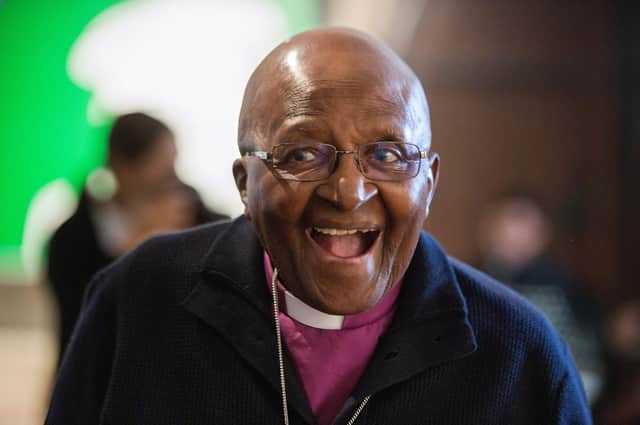Desmond Tutu put it perfectly. Forgiveness is key to a better, fairer future – Karyn McCluskey


I think this is a thread that will run through lots of interactions once we’ve navigated this fraught period.
Forgiveness from our loved ones for being ill-tempered, dismissive or not present in conversations. Forgiveness from workmates for feeling too exhausted to properly contribute to meetings or to find the intellectual rigour to engage with thorny issues. My daughter has exploited my failings during this time – working too long, leaking stress and frustration – and capitalised on my guilt to get yet another dog.
Advertisement
Hide AdAdvertisement
Hide AdForgiveness will be something we’ll all crave, but it might not be granted. Asking to be forgiven and receiving forgiveness are two different things. Some might hold the hurt caused by others tightly, unable to move past wrongdoing.
Drummond Hunter, who died in 2002 and was a leading light in Human Rights and Penal Reform in Scotland, was held as a prisoner of war and suffered dreadfully. He wrote of his experience: "You have to forgive, because hatred corrodes you.”
It’s true, although uncomfortable. We all recognise the resentment and intrusive thoughts that being on the receiving end of pain causes, and the emotions that come unbidden in the quiet of the night.
How many of us can say we’ve never behaved in a way that required us to seek forgiveness? How many of us have led organisations that made errors which required us to ask the forgiveness of others? Maybe we don’t do it enough. Nobody is owed forgiveness, but the asking is everything.
I’ve always admired the Japanese approach to seeking forgiveness. It seems alien to us, yet it’s part of their culture and practised by all, from individual to politicians, celebrities to whole governments. It’s a reflection on what went wrong, and an act that considers the harm and how each person is affected.
At a government level it can be uniquely important and create a foundation for change; whether that’s the role of a country in slavery, the criminalising of gay people, the oppression and murder of aboriginal or first nations people, or the treatment of children who ended up in our care system and whose lives were further destroyed by our institutions.
Greg Boyle, an LA-based Jesuit priest who’s speaking (virtually!) in Scotland next week alongside ex-Chief Medical Officer Sir Harry Burns, set up the largest gang intervention, rehabilitation and re-entry program in the world.
He has also buried more young people than he could count. In 2014, Obama named him a champion of change, although really he’s a champion of forgiveness. He brokered peace between warring gangs, brought communities together and he leads the way in promoting forgiveness as a bridge to a more peaceful community.
Advertisement
Hide AdAdvertisement
Hide AdForgiveness can be transformative for both parties. It can turn the volume down on anger, introduce reflection and has the ability to lighten heavy, weary hearts. Forgiveness is next door to hope.
Desmond Tutu put it perfectly when he said: “Without forgiveness there is no future.” But if we lay a bedrock of forgiveness we can build a better, fairer and healthier future for all.
Karyn McCluskey is Community Justice Scotland’s chief executive